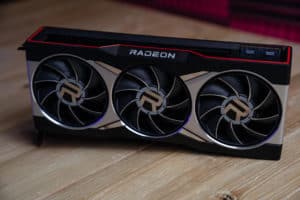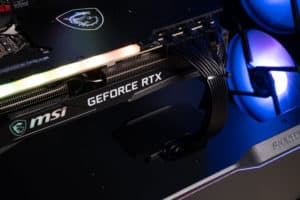Intel, Nvidia, and Quest 2 big winners in latest Steam Hardware Survey
We look at the latest consumer hardware report from Valve

WePC is reader-supported. When you buy through links on our site, we may earn an affiliate commission. Prices subject to change. Learn more
Every month, Valve put out a hardware survey, which collates all the usage data of their customers and corroborates it into a very handy consumer report on what people use when it comes to their PCs. We can see what the most popular gaming PC looks like, in addition to other things such as which hardware has had wide adoption amongst consumers. After crawling through the report, we’ve found some big winners, and trends to keep your eyes on as we mature into a newer generation of PC hardware, addled full of ray tracing and all number of other goodies to keep your eyes on.
Quest 2 sees huge adoption
Sitting with the majority of the market share in the VR Headset space, Meta’s Quest 2 VR headset has experienced a further boost after Black Friday and the holiday shopping season that sees it dominating the VR space. The Quest 2 VR headset is currently capturing 39.6% of the entire PC VR market, which makes it a harder sell for consumers to buy into other headsets. Even Valve’s own Index headset is currently only managing to capture 8.26% of market share by comparison. With rumors of a brand-new headset coming from Meta this year, we could see the Quest 2 live on, and a higher-specced device released for those looking for a little bit more of a premium experience compared to the Quest 2’s relatively meager spec sheet.
Despite the GTX 1060 being the most popular graphics card, Nvidia is starting to make a dent with heir current-generation offering. The 3070 leads the charge with 1.94% of surveyed users having an RTX 3070 in their system. However, the real story is with the RTX 3060 and its various configurations. The RTX 3060 desktop card holds 1.87% of the market share, with the laptop variant also controlling 1.74%. Trailing behind slightly is the 3060Ti, which is further holding another 1.29%. Comparatively, the market share currently held by AMD when it comes to GPU performance with their current generation of cards is with the RX 6700XT, which only has penetrated 0.19%, which is minuscule compared to the green giant’s successes with their latest generation of Ampere graphics cards.
Intel fights back against AMD
While Intel has always had the lead when it comes to consumer market share in gaming PCs, AMD began to fight back with their Ryzen line of consumer CPUs, cutting into a significant portion of Intel’s pie. However, with the launch of the 12th Gen Alder Lake CPUs, Intel is starting to take back a bit of ground. We saw that in December 2021, Intel gained exactly 0.82% of the market share, while AMD lost that exact same amount. This tells us that while customers are indeed brand loyal in some cases, ultimately timing, performance, and pricing are all key factors.
What’s next for PC hardware?
Looking at the data, it certainly seems that we’ve finally moved past the era that we lived in for so long between 2015-2020 with PC hardware almost being ‘stuck’ in a rut, with very minor generational improvements. Now, we’re seeing innovations such as smaller die sizes from AMD and advanced AI built into graphics cards that allow users to gain further performance. The real battle for getting the most customers ultimately lies in the low-end. The GTX 1060 still remains king, but is that all about to change with the RTX 3050 and RX 6500 XT? Only time will tell.
Looking for some new parts to pop into your PC? We’ve got you covered.
After a new card to build into your system? Look no further.





